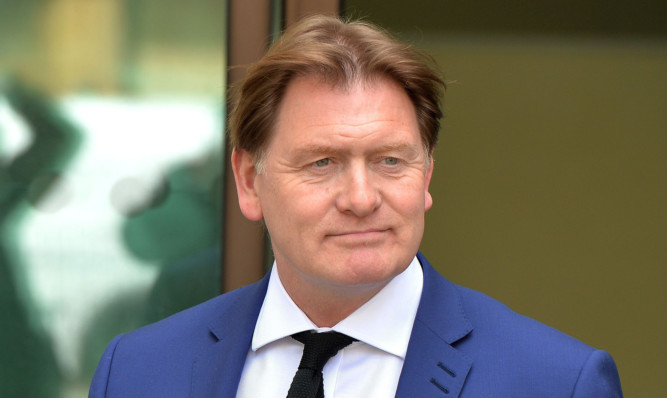The Commons expenses watchdog has been lambasted for failing to stop disgraced former MP Eric Joyce racking up debts of more than £10,000 to the taxpayer.
A review has found the Independent Parliamentary Standards Authority (Ipsa) was “complicit” as the ex-member for Falkirk filed invalid claims over a number of years.
No “decisive action” was taken despite clear evidence that he was “persistently misusing” his official credit card, and he was given “contradictory and misleading” information about the size of his debt.
The damning findings came in a review by Ipsa compliance officer Peter Davis into the handling of the case.
Mr Joyce, who stepped down from the Commons at the election after being convicted of headbutting a Tory MP during a drunken bar brawl, had complained after Ipsa began docking his pay to recover nearly £13,000 of debt.
Some £6,200 of that was for credit card bills that the watchdog paid – before deciding they were not a valid expense. In December 2012 – 10 months after his notorious Commons attack – he spent £896 on a two-night stay at the Park Plaza near Westminster, nearly treble the £150 a night limit.
The compliance officer concluded: “Ipsa has provided Mr Joyce with payment cards since 2010 and his misuse of the cards has been fairly consistent throughout the time he has held them.
“Ipsa has briefly suspended his card on several occasions when the MP has failed to provide information and supporting receipts at the end of a payment period…
“Had they taken decisive action when it became apparent that there was persistent misuse of the payment card the accrued debt would have been a fraction of the figure it has become.”
The report pointed out that Ipsa told Mr Joyce in June 2014 that his debt was just £367. But by October officials were arguing it was £4,410.
“The information provided to Mr Joyce regarding the size of his payment card debt has been contradictory and misleading,” Mr Davis wrote.
“There has been no continuity in how his case was handled and no consistency of approach. “The time taken to arrive at a definitive figure for his payment card debt is unsatisfactory.”
The compliance officer criticised Ipsa’s policy on whether MPs could claim for hotels they booked, but then did not use, as unclear. He ruled that £575 of debt for hotel “no shows” should be written off as they were “genuine and unavoidable”.
Mr Joyce’s accommodation claims were lower than many other politicians because he used hotels rather than renting a property, according to Mr Davis.
The ex-MP has also produced more evidence to back up other outlays. However, the report upheld the demand for £4,606.98 in excess card spending to be repaid.
The compliance officer also examined a dispute over whether Mr Joyce should have been claiming travel and accommodation costs for his senior parliamentary assistant.
The member of staff had relocated from Falkirk to work at Westminster in 2013 at the then-MP’s request, and was told his commuting costs and hotel bills when staying late would be covered.
Mr Joyce argued this arrangement had been signed off by Ipsa, although no records of conversations exist.
But after more than a year of claims being paid, Ipsa ruled in December 2013 that they should not have been allowed.
Mr Davis said the watchdog had been right to strike out the claims, but it was “complicit” and had produced “guidance on staff travel that was unclear and open to misinterpretation”.
“Despite questioning individual claims, the underlying validity of the claims was not challenged over a period of 16 months,” the report said.
“In December 2013, when the MP was finally told by Ipsa that the claims were not allowable, he was not informed that repayment would be required.
“Ipsa did not inform the MP that repayment would be required until October 2014, almost a year after he was first informed that the claims were not allowable.”
While upholding the demand to repay £4,408 in hotel costs for the parliamentary assistant, the report went on: “In light of these factors, and particularly the resultant delay caused in pursuing the debt, the compliance officer would invite Ipsa to consider the proportionality and appropriateness of their current actions.
“In particular, he would ask Ipsa to consider whether they should continue in their attempt to recover the £1,442.60 paid for staff travel.”
But an Ipsa spokesman rejected the call to write off that element of the debt. He said the watchdog had recovered just over £4,600 from Mr Joyce so far.
“We accept the recommendation to waive the £575 for hotel ‘no-shows’ fees, where our rules were unclear and that we could have acted faster to inform Mr Joyce of the money owed,” the spokesman added.
“Ipsa ensures that MPs can only claim for legitimate parliamentary costs and, as such, we will be recovering the money for the claims that are not eligible.”
